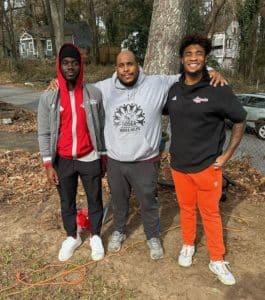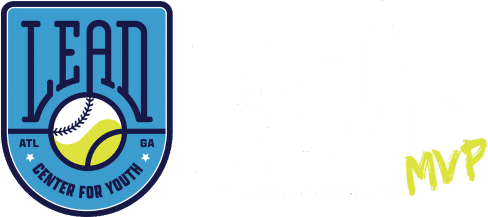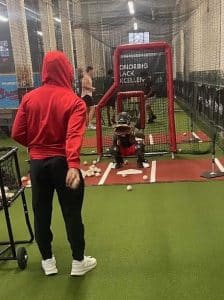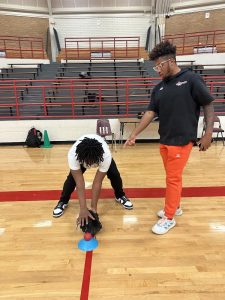
Iris Murdoch once said, “We live in a fantasy world, a world of illusion. The great task in life is to find reality.”
I have been coaching for more than 25 years and can attest, like millions of others, that coaching is rewarding. It often starts with helping players discover reality through hard work, success, failure and sacrifice.
Coaching is about being transformed, and transformation doesn’t always feel good to me as an adult. And I know it doesn’t always feel good to my young hitters.
I have discovered that when transformation leads to triumph for those I have coached, it is because I have accepted the task, and I have the tools and the time.
I recently fulfilled a task of cleaning the yard and putting up Christmas lights for an Atlanta Grove Park Community resident. I had the help of L.E.A.D. coaches Andre Paris and Tre’ Hampton, Grove Park Foundation Executive Director Gavin McGuire, and Grove Park Foundation Volunteer and Community Engagement Manager, Roy Cogdell.
The yard had more leaves than I’ve seen in a long time. It took us three hours. We needed three leaf blowers, two push brooms, one leaf vacuum and several bags.
What if the task allotted three-hours, but we only had a couple rakes, two people, love in our hearts and a don’t quit attitude.
Task. Tools. Time.
Transformation takes time. November through January is the time of year my hitters commit and discipline themselves to build habits and strength.
Talent is what you do well. Habits are what you do well repeatedly without thought. Skills are what you do well repeatedly without thought while under stress.
There are seven parts of the swing and it takes 3,000 reps to build a habit. That’s 21,000 reps to build a habit each year and another 21,000 reps to convert the habit to a skill.
- Stance/Load
- Timing
- Tempo
- Tracking
- Approach
- Contact
- Extension/Finish
Do you want to be elite?
February through April is the time we convert habits to skills, while May through July is the time to maintain skills during national/international competition.
Here are a few tools that I use to develop my hitters.
As Jeff Duntemann says, “A good tool improves the way you work. A great tool improves the way you think.”
For more information, visit L.E.A.D. Center for Youth today.
If you found this inspiring and thought-provoking, or if you have any questions, comments or concerns, add me on Discord and let’s go deeper.
C.J. Stewart has built a reputation as one of the leading professional hitting instructors in the country. He is a former professional baseball player in the Chicago Cubs organization and has also served as an associate scout for the Cincinnati Reds. As founder and CEO of Diamond Directors Player Development, C.J. has more than 22 years of player development experience and has built an impressive list of clients, including some of the top young prospects in baseball today. If your desire is to change your game for the better, C.J. Stewart has a proven system of development and a track record of success that can work for you.




